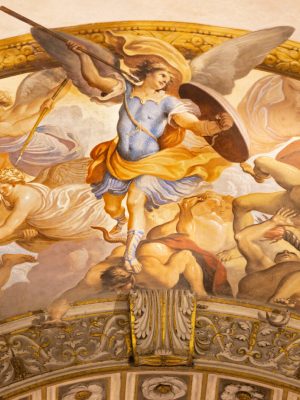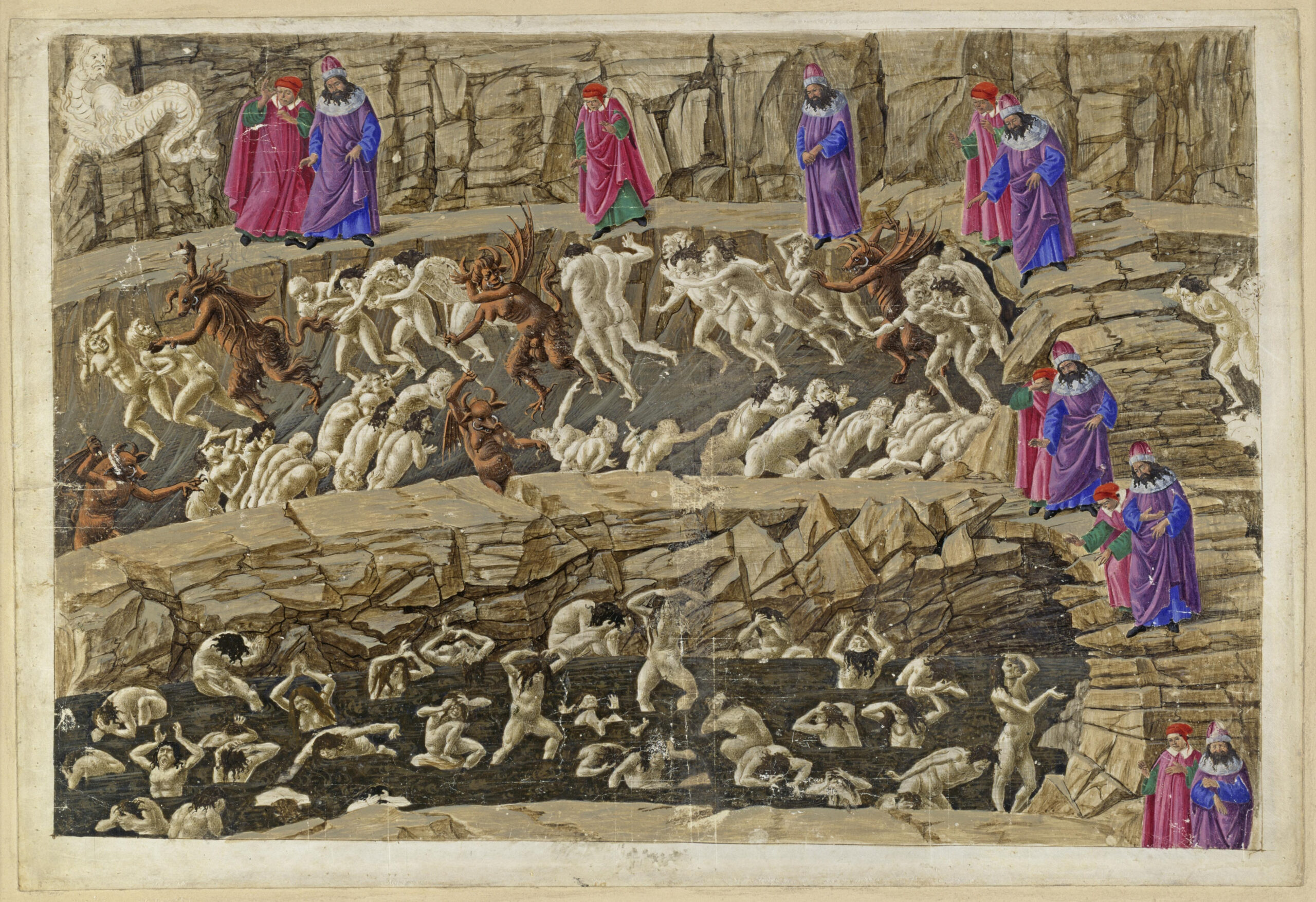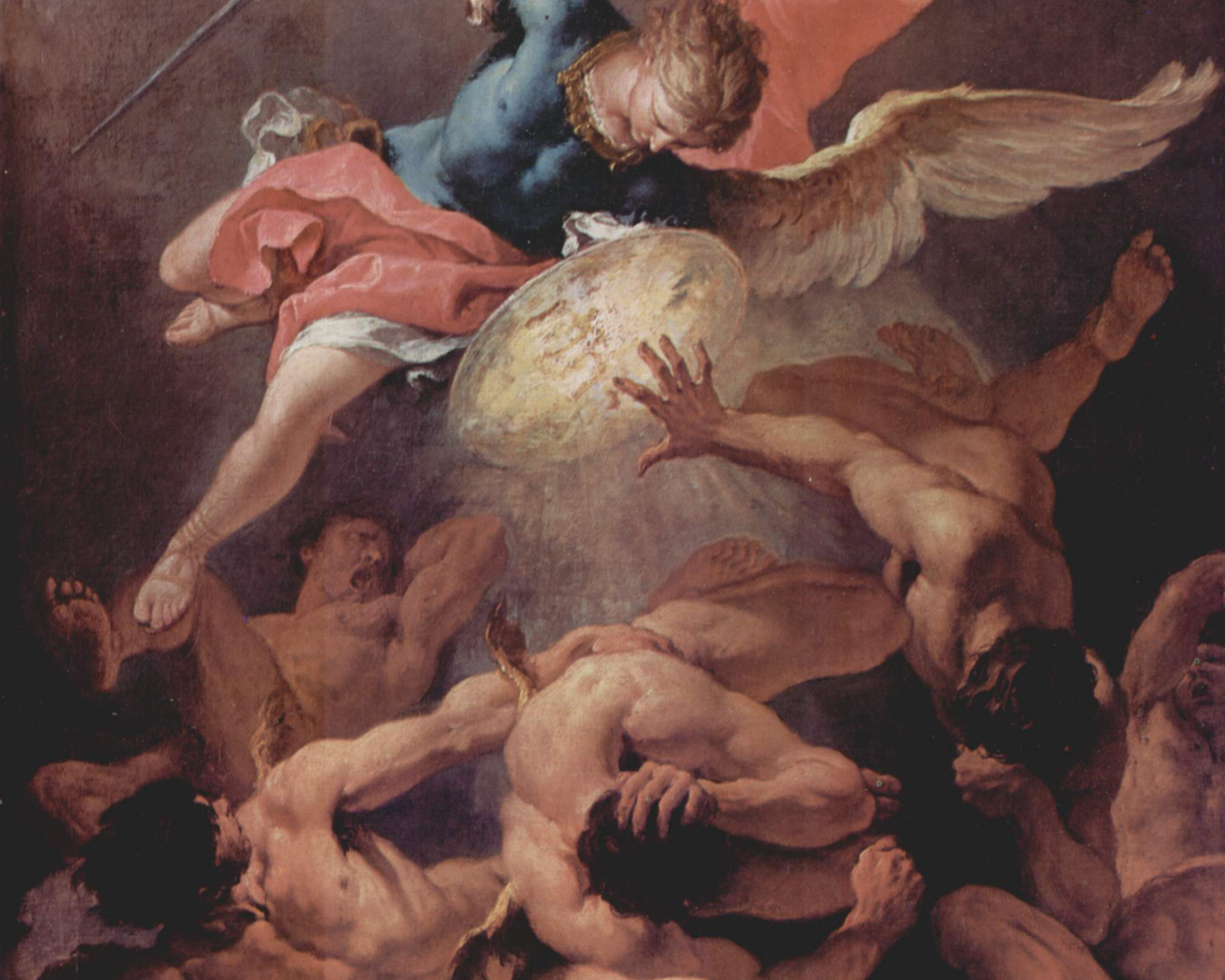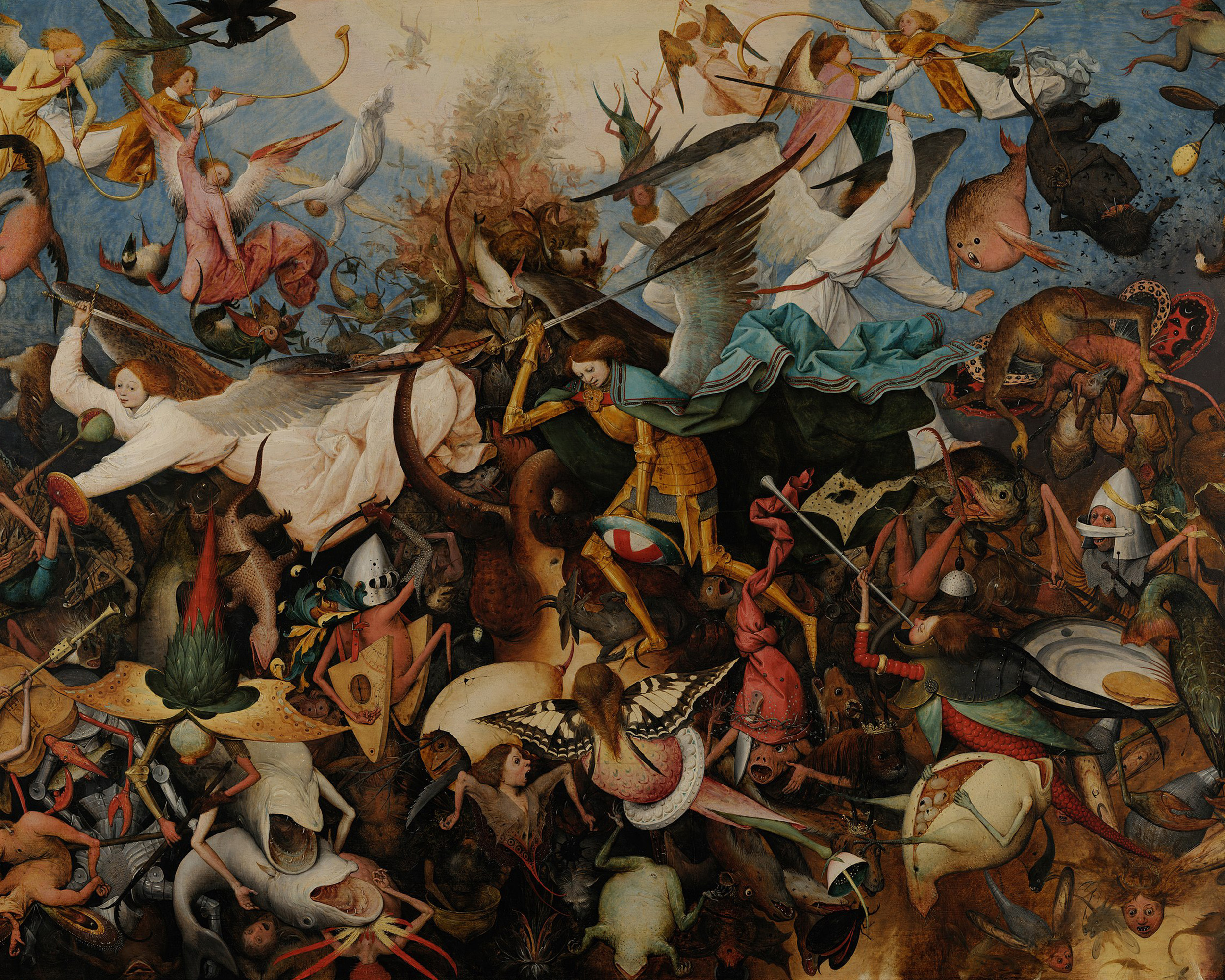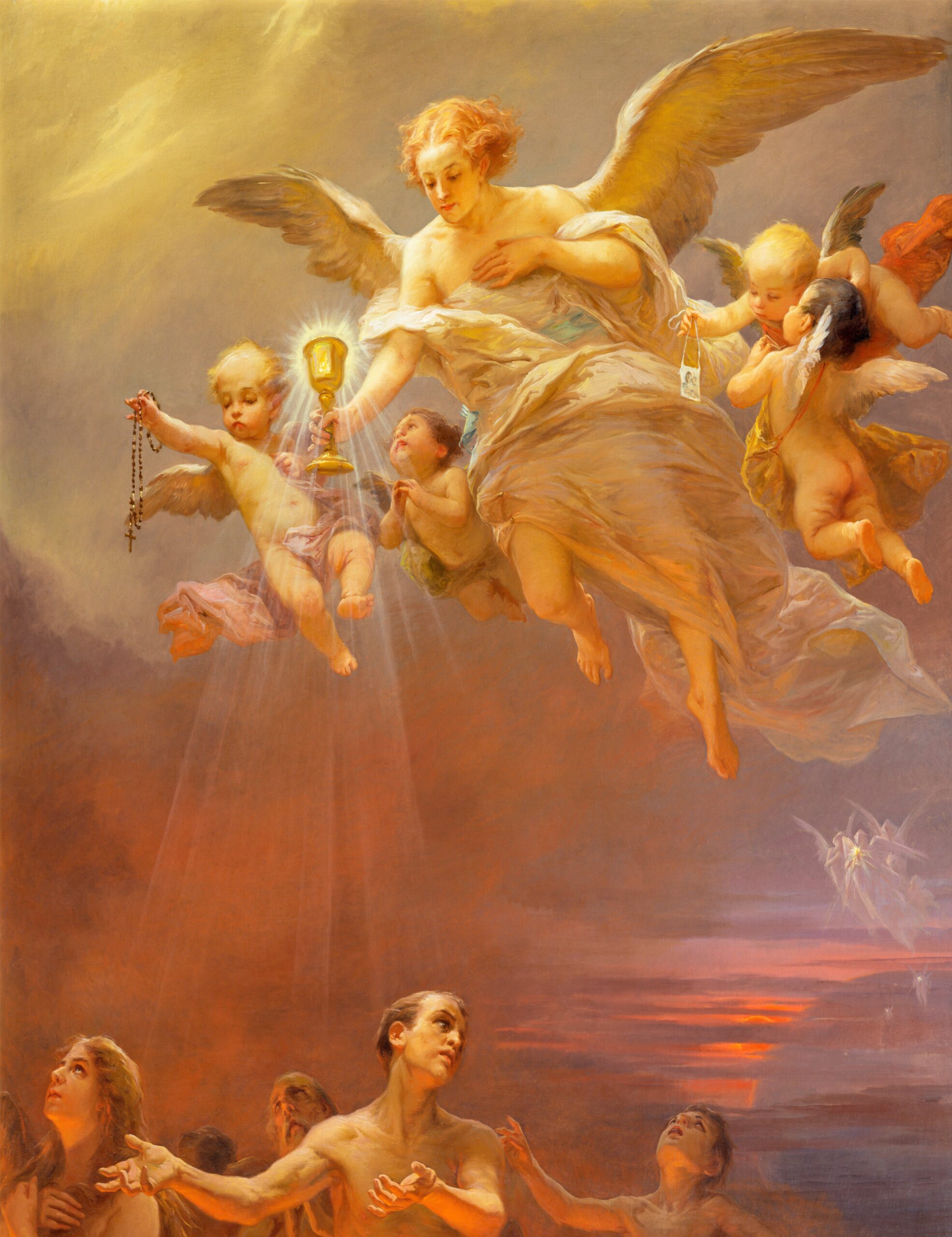As tradition holds, O Lord, the radical idea of Your incarnation became known to the angels. Your greatest of angels of the highest choir, Lucifer the seraphim, could not bear the thought. He, the greatest of all creation, would be called to bow down to flesh and bone, artery and vein, synapse and sinew. He who could dash across the universe by the pure power of will would be called to prostrate before He who would receive applause for learning to crawl, He who would flail His arms as He learned to walk, He who would one day tire from swinging a hammer.
Truly, O Lord, he who could sling thunder bolts better than Zeus could not bring himself to adore He who would take pleasure in skipping stones; he who could pull the sun across the sky with less effort than Apollo refused to follow He who would one day be pulled across the desert on an ass; he who could lift the world upon his back with greater ease than Atlas could not submit himself to He who could be crushed beneath the weight of a beam of cypress.
And until this point, if such temporal words can be used, Lucifer was in fact the crowning achievement of creation. It was somehow made known to him, however, that not only would God do the ungodliest thing imaginable (or, perhaps, beyond imaginable) and become a sniffling, sneezing, wheezing, and whining baby, but a fourteen-year-old girl would be made into his queen, the queen of all creation, the mediatrix of all graces.
I fear getting into the mind of the devil, O Lord, but it easy for my own prideful mind to see his point. Who does not hate having pride of place taken from him? Ah, there is that word again: pride. I know, Lord. I see it. But I cannot help but ask myself: if I were as glorious as Lucifer, would I have humbled myself before Mary of Nazareth and would I have adored the babe in a manager? How much prominence do I give to pride of place, to status, to association, to rank and privilege? Do I treat kings and servants the same?
I must admit to You and myself, it is easy to worship You who have conquered the Roman Empire, who have had great cathedrals built in Your honor, the greatest art depicting Your life, the greatest music singing Your praise, the greatest minds stretching to comprehend You, the greatest poetry surging every syllable with passion for Your sacred Passion. I sit here in my comfortable chair looking back over two thousand years of triumph according to any definition. Only a dunce would fail to pay You homage, to worship You, and to follow the greatest of men in their pursuit of You.
But what if I only saw Your defeat rather than Your victory? What if I only saw Your rabble hiding from the Romans in hovels rather than Your cardinals in cathedrals? What if I only smelled Your earthly stench rather than incense raising the prayers of the faithful to heaven? What if I only heard Your agonizing scream, “Eli, Eli, lama sabachthani,” rather than the soothing chant of Your holy monks? What if I stood at the foot of Your cross and were splattered with blood rather than gazing up at a beautiful stained-glass window depicting Your passion?
Jesus of Nazareth, I live my life in gruesome pride, proud of my allegiance to you. But I am nothing more than a spoiled heir to a magnificent fortune, proud in his inheritance, fooling himself that the gold and silver are meritorious, that they are the fruits of his labor, and that if others worked than they would likewise win.
Forgive me, O Lord, for I have done nothing for my inheritance.
This brings me back to Lucifer, Your greatest of angels. In Your infinite humility, O Lord, You allowed this glorious being to reject You and Your dearest mother, the girl of Nazareth, the Queen of Heaven. You force no one to love You. Your meekness held no chains around the seraphic wings, and You thus allowed him to fly away, even unto the pit of hell where Your light will never shine. But he did not leave. He waged a fearsome war against Your kingdom. Your meekness and humility allowed a great schism, a clash of angels.
In what would become Your typical way, You chose Michael from the lowly seventh choir of angels to lead Your army. You chose the humble to cast down the mighty from his throne. By the powers of nature instilled by You, Michael the archangel held no power over the glorious seraphim. But with his humble receptivity of Your grace, all things were possible.
It is from the very beginning of sin in the universe that we see Your meekness and humility and we see Your grace bestowed upon the humble. It is in this clash of angels that we see the foreshadowing of all that is to come, for the story of mankind is nothing but the battle between pride and humility. And the story of my own heart, O Lord, is nothing but the struggle between pride and humility, the struggle between loving self and loving You.
NB: This article is part of a series looking at Jesus through humility.


